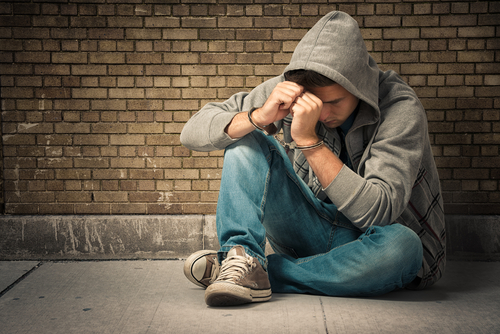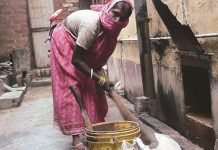This article is written by Chandana Pradeep, from the School of Law, University of Petroleum and Energy Studies, Dehradun. This Article analysis in detail about the concept of victim justice and access to fair justice.
Table of Contents
Introduction
“…People, by and large, have lost confidence in the Criminal Justice System … .. Victims feel ignored and are crying for attention and justice … .. there is a need for developing a cohesive system, in which, all parts work in coordination to achieve the common goal”. This was used to describe the present status of victim justice in India by Justice V S Malimath while deciding the reforms in the criminal justice system.
The victims are a significant part in the criminal justice systems all around the world and slowly reforms had been adopted to ensure that the victims get the justice they deserve but, India still has a long way to go as the concept of victim rights are often disregarded as the major focus is shifted to the accused rather than the victim.
This article seeks to shed more light on the concept of victim justice as it has been a neglected concept throughout the years but, it has turned out to be of great importance at present.
Concept of victim justice
According to the Declaration of Basic Principles of Justice for Victims of Crime and Abuse of Power, the definition of Victim has been stated as “Victim” means persons who, individually or collectively, have suffered harm, including physical or mental injury, emotional suffering, economic loss or substantial impairment of their fundamental rights, through acts or omissions that are in violation of criminal laws operative within the Member States, including those laws proscribing criminal abuse of power.
A person may be considered a victim, under this Declaration, regardless of whether the perpetrator is identified, apprehended, prosecuted or convicted and regardless of the familial relationship between the perpetrator and the victim. The term “victim” also includes, where appropriate, the immediate family or dependants of the direct victim and persons who have suffered harm in intervening to assist victims in distress or to prevent victimization. The provisions contained herein shall be applicable to all, without distinction of any kind, such as race, colour, sex, age, language, religion, nationality, political or other opinions, cultural beliefs or practices, property, birth or family status, ethnic or social origin, and disability.
Victims play a vital role in any proceeding in the court of law as it is their rights that have been affected due to various reasons such as their fundamental rights being breached, or due to any criminal mishap that occurred to them etc. Even though this is the case, In India the scenario is different as more rights are given to the accused and not to the victims as they do not have many remedies to seek justice.
Victim justice is a method through which the victims can seek justice from the court of law and ensure that their rights are protected and not be just witnesses to the proceedings when they take place and they usually include the right to get compensation, the right to be included when the proceedings are happening etc. This method is very necessary too so that the victims get a platform to raise their voice on the atrocities that have taken place to them and how it has affected them, by doing this the offender also takes upon a sense of responsibility to the crimes that have been committed by them.
Historical background
The rights of victims were one of the most important topics since time immemorial since it was very much necessary and steps were taken to ensure that their rights were protected.
A notable development in the history of Victim Justice and their rights was when the Declaration of Basic Principles of Justice for the Victims of Crime and Abuse of Power, 1985 which was adopted by the General Assembly of the United Nations which focused on the rights of the victims as well as how they can enforce these rights and it recognised methods to secure the rights of the victims such as the victim should have access to a free trial, should get compensation for the damages suffered, they should get any sort of assistance they need with regard to the procedures in the case, restitution was identified as one of the parameters to secure the rights of the victims.
The first time that the concept of “Victim Justice” was talked about which changed the face of victim rights as a whole in the United States was in the case of Linda R.S v. Richard D,410 U.S. 614 (1972). this case was based on the issue where there was a discriminatory application of Article 602 of the Texas Penal Code (amended later) and it was held by the court that the mother does have interest in her child but only when the father imprisoned or detained and that a private citizen does not have a judicial interest as they have no control over the same. This judgement is a clear example as to how victims were neglected but it also suggested a way in which victim’s rights could be protected which was by making laws on the same and by implementing them. This case is considered to be a landmark judgement after which the period of Modern Crime Victim’s Rights Movement began.
In the year 2006, another declaration was adopted which focused on the Victim Rights and how to secure these rights in a better method and for that Basic Principles and Guidelines on the Right to a Remedy and Reparation for Victims of Gross Violations of International Human Rights Law and Serious Violations of International Humanitarian Law was enacted.
India never adopted the Declaration of the Basic Principles of Justice for Victims of Crime and Abuse of Power,1985 which is why the concept of victim rights is such a bleak concept for the Indian judicial administration.
Scope of victim justice
The concept of victim justice is a neglected concept in India, but it is gradually being recognised as it is very important to protect the rights of the victims and ensure that they get justice and it has gradually broadened with time.
Mukesh v. State of NCT, Delhi (2013)
In the year 2013, the case of Mukesh v. State of NCT, Delhi is famously known as the Nirbhaya case which happened in the year 2013 where a young student had been gang-raped by a few men in a moving bus, and this caused a lot of changes to the law as after this, the concept of victim justice began to gain momentum.
This case was a seven-year-long struggle by the end of which the victim’s family finally got justice and on March 20, 2020, the accused had been given the death sentence.
The Criminal Law (Amendment) Act, 2013 came into effect, though all the recommendations made by the Justice Verma committee had not been adhered to, it still made relevant changes that were needed with respect of laws which were related to the rape.
There were amendments made in the Indian Penal Code,1860, Indian Evidence Act, 1872, The Code of Criminal Procedure, 1973.
Few of the amendments that have been made are as follows:
- Indian Penal Code, 1860 inserted new sections such as laws related to voyeurism (Section 354 C), gangrape( Section 376 D), acid attack (Section 326 A), stalking (Section 354 D), rape ( Section 375) etc.
- In the Code of Criminal Procedure, 1973 there were amendments done to the section 197 and Section 309 as well as Section 357 C was added which provided free medical care facility to the victims under the Section 376 IPC.
- The Evidence Act added Section 53 A, Section 114 A and Section 119.
These were some of the changes that were made in law so that victim justice could be provided.
Articles that relate to the concept of victim justice in our Indian constitution
The legislative framework of the Indian Constitution has changed drastically as the Ambit of Article 14 has widened along with Article 21 of the Indian Constitution. Rape violates the right to life and personal liberty and it has included the right to enforce justice for the victims.
Bodhisattwa Gautam v. Subhra Chakraborty (1996)
In the case of Bodhisattwa Gautam v. Subhra Chakraborty, it was held by the court that rape was not a crime only against the victim but towards the society as well and it is with great will power and effort that the victim finds a way back into the society and rape is violative of all the basic rights of a human being and it is also violative of the victim’s rights as well and breaches Article 21 (Right to Life and Personal Liberty) of the Indian Constitution.
Pravat Kumar Mukherjee v. Ruby General Hospital and Ors. (2005)
In the case of Pravat Kumar Mukherjee v Ruby General Hospital and Ors., it was held in this case that accident victims could not be denied medical treatment and even if there are no family members present during that time to give consent, they still should not be denied the treatment as it comes under the ambit of Article 21 of Right to life and personal liberty.
In the case of R Rajagopal v. State of Tamil Nadu, it was held that victims of sexual abuse, kidnap and offences of like nature, it is an exception under Article 19(2) of the Indian Constitution, and their personal information etc should not be made publicised.
These are some of the ways the Indian Constitution has ensured that victim justice is enforced.
Victims of crime
Victims of crime are defined in the Declaration of Basic Principles of Justice for Victims of Crime and Abuse of Power as someone who has suffered emotionally, physically or mentally, or there has been a breach of their fundamental rights, suffered economic loss etc. due to a crime that had happened to them regardless of any factors such as gender, caste etc. the impact of the damages suffered by different people varies in nature.
The Canadian Centre of Justice Statistics states that about one-third of violent crimes resulted in victims having their day-to-day activities disrupted for a period of one day (31%), while in 27% of incidents, the disruption lasted for two to three days (Aucoin & Beauchamp, 2007). In 18% of cases, victims could not attend to their routine for more than two weeks. A majority of incidents caused emotional impact (78%). Irrespective of the type of victimization, one-fifth of the victims felt upset and expressed confusion and or frustration due to their victimization. Overall, victims felt less safe than non-victims.
There are certain rights that are provided to a victim such as right to compensation, restitution, right to hear cases etc. These rights can be exercised by those not only for those who come under the definition of “victim” but also the family members can exercise the rights that are provided to the victims.
There are special rights that are given to a category of victims that have faced sexual assault, stalking or domestic violence, some of them are as follows:
- The right to attend proceedings: The victim as well as their family can attend the proceedings that take place in the courtroom as the victims might want to witness the proceedings when it happens but they are not allowed to attend the proceeding where they are a witness to any case. The victims can also have people to attend the proceedings with them as a support system so that they can enforce their rights in a better manner.
- The right to be heard: The victims have a right to be heard in the court of law and voice out their concerns and how the crime has impacted them, this is also a way to promote victim justice.
- The right to information: The victim as well as their families have a right to be informed of the court proceedings and any other relevant information that is important for them to be informed about such as notices etc.
- Other rights include Right to compensation, the right of restitution, the right to speedy trial etc are some of the rights that are available to a victim so that they can seek justice.
Access to fair justice
Access to fair justice is one of the principles which is stated in the Declaration of Basic Principles of Justice for Victims of Crime and Abuse of Power which says that the victims should not be objectified and should be treated with dignity and there should be methods in the judiciary so as to help the victims seek justice in a manner which is less costly and is accessible to the victims.
Some of the ways to ensure that the victims have access to fair justice are by informing the victims about various information that is essential for them to know regarding the development of the proceedings that take place, by avoiding any delay in the proceedings which are unnecessary to ensure a speedy process, to help and assist the victims etc.
By doing this, victim justice is ensured and their rights are protected as well.
Compensation
The right of compensation is an important right that is given to victims so that they can get compensation for the damages that they have suffered. Sometimes, the offender is not capable of providing the compensation when that occurs, the State ought to give compensation especially in cases where the family of the victim has suffered due to the passing of the victim or when the victim has suffered grave injuries due to the offence which had been committed.
Some of the sections which grant compensation are:
- Section 357 A of Code of Criminal Procedure Code: this is the victim compensation scheme and this is one of the provisions which grants compensation and is a provision that is handy for the victims to seek justice. This states that a specific amount should be given as compensation to the victims for the damages that they have faced and the quantum of the compensation would be decided by the District or the State Legal Service Authorities upon case basis.
- Section 5 of the Probation of Offenders Act,1958: This section also ensures compensation to the victims for the damage that they have suffered and it is read along the Section 357 of the Code of Criminal Procedure,1973.
- Section 163 of the Motor Vehicles Act,1988: This states about the compensation that is awarded to a victim in case of a hit and run and for that the compensation is through a fund known as a “Solatium Fund’ and the quantum of money has been decided on a case to case basis.
Relevant case laws
There are various case laws that have changed the concept of victim justice in India.
Delhi Domestic Working Women’s Forum v Union of India (1995)
In the case of Delhi Domestic Working Women’s Forum v Union of India(1995 SCC (1) 14), a group of women were raped in a moving train by army men and in this, there were specific guidelines given on how one can assist a rape victim and ensure that they get justice:
- The guidelines stated that the victims of sexual assaults would be provided with a representation in the court who not only will help the victim with the case but also in other things that are necessary to help reduce the impact of the assault such as counselling etc.
- That legal assistance would be provided to the victims when they arrive at a police station as the victims would be in a situation of distress.
- Before any questions are asked to the victim, they have the right to know that they have a right to be represented by someone.
- Few advocates should be available in the police station to represent the victims in a case where due to some reason, the victim’s lawyer is not available to represent them.
D K Basu v State of West Bengal (1997)
In the case of D K Basu v State of West Bengal, Mr DK Basu who was an executive chairman of the Legal Aid Services in West Bengal had wrote a letter to the higher authorities about the custodial violence and the suffering that the prisoners were made to go through and that the compensation that they received was nothing compared to what they have gone through, this complaint was taken to be a writ petition and the court stated the importance of compensations as sometimes this is the only method in which the family members of the victim can soothe their pain especially if the victim is the only one who is working in the family.
Rekha Murarka Vs The State of West Bengal and Anr (2019)
In this case, the petitioner Ms Rekha is a widow who had faced injuries in an attempt to save her husband from being murdered in the year 2014. The petitioner had appointed a private counsel and prayed to the court to start the argument only after the public prosecutor had done it and to examine and cross-examine the witness only after the prosecution had done so.
In this case, it was held by the court that the victim can opt for private counsel but their duties and functions would be limited and that they could not give arguments or cross-examine and examine the witnesses. This judgment is criticised as this judgement restricts the victim from taking part in processings as well as it portrays that the Public Prosecutor is more credible in the court of law.
By restricting the victim from taking part in the proceedings, it does not classify as a fair trial which is a necessary element to ensure victim justice and due to the lack of this, it is a step back from the concept of victim justice and it is again victimising the person.
The need of the hour is to ensure victim justice and not the opposite.
Conclusion
The victims are still struggling to get the justice that they deserve as there are not many laws which can help them seek justice compared to the laws which are present with the accused.
Though there are many changes that took place with regard to laws in India on victim justice, it is just the start and there are miles to achieve in terms of ensuring that justice is provided to the victims as well and to make sure that their rights are not neglected as before because they play a very important role as all of the victims are affected differently because of the reason that, there are different types of crimes happening, so it is all the more necessary that the rights and concerns of these victims are protected and looked into respectively to ensure fair justice to all.
This is the need of the hour and the necessary steps should be taken so that it is a step forward to ensure victim justice and then only, will the society progress when all the elements of the society are included and their rights are safeguarded.
References
- http://www.legalservicesindia.com/article/1349/Victims,-victimization-and-victimology.html
- http://www.ielrc.org/content/a0402.pdf
- https://www.thehindu.com/opinion/op-ed/victim-justice-is-two-steps-forward-one-step-back/article30777438.ece
- https://www.lawctopus.com/academike/article-21-of-the-constitution-of-india-right-to-life-and-personal-liberty/#_ednref12
- http://docs.manupatra.in/newsline/articles/Upload/5C770380-C132-4069-A666-41373B4935FB.pdf
- https://criminallawstudiesnluj.wordpress.com/2020/02/20/rekha-murarka-v-state-of-west-bengal-arbitrarily-undermining-the-victims-rights/
LawSikho has created a telegram group for exchanging legal knowledge, referrals and various opportunities. You can click on this link and join:
 Serato DJ Crack 2025Serato DJ PRO Crack
Serato DJ Crack 2025Serato DJ PRO Crack











 Allow notifications
Allow notifications


